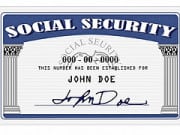This past year our family experienced more medical expenses than planned. Nevertheless, we made it through the year just fine. I was thankful we didn’t end up accumulating any credit card debt. I know that can’t be the case for everyone . . . so should you use your emergency fund to pay off debt?
10 Free Bible Study Resources And Tools
I’ve spent some time searching around the web to see what I could find. Overall, I’ve found some great free resources for learning and studying God’s Word. Therefore, I decided to provide you 10 free Bible study resources I came across in which I think may be worthwhile to visit and review to see if they fit your needs…
Fix Social Security by Changing Retirement Age to 70?
I must admit I don’t think much about Social Security as a retirement option these days. How could I when most financial advisors and experts tell you to plan around it and don’t depend on it because it won’t be there by the time you retire (unless you’re close to retirement). Personally, I focus on contributing to my company’s 401(k), my Roth IRA and traditional IRA as the best sources of retirment income. ..
Cash Envelope Budgeting
In case you don’t know or need a refresher, cash envelope budgeting involves using envelopes to manage money. An envelope is created for each of your budget categories such as food, clothes, entertainment, transportation, etc. After you receive a paycheck you fund each individual envelope (or budget category) the cash allotted to it for the month…







